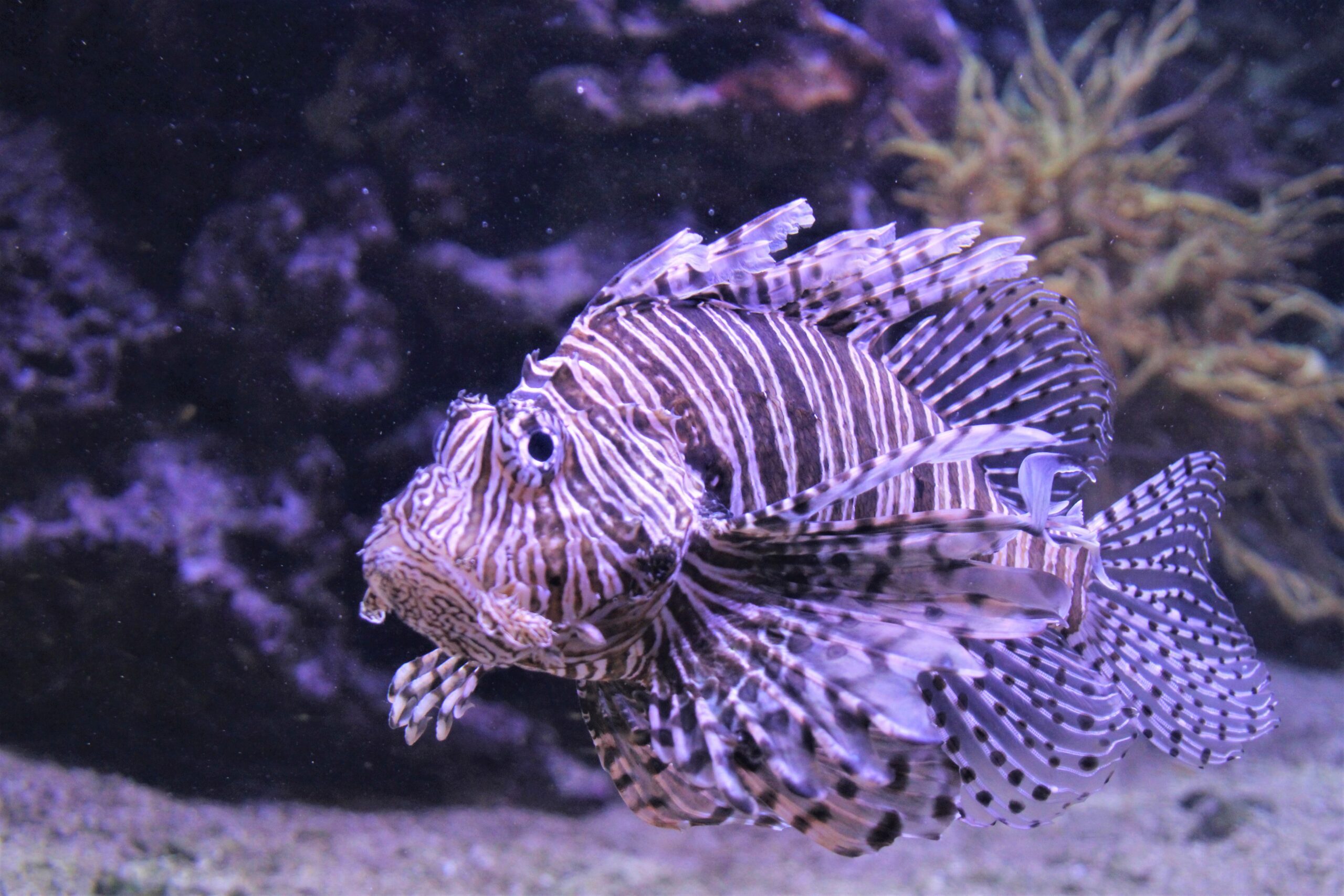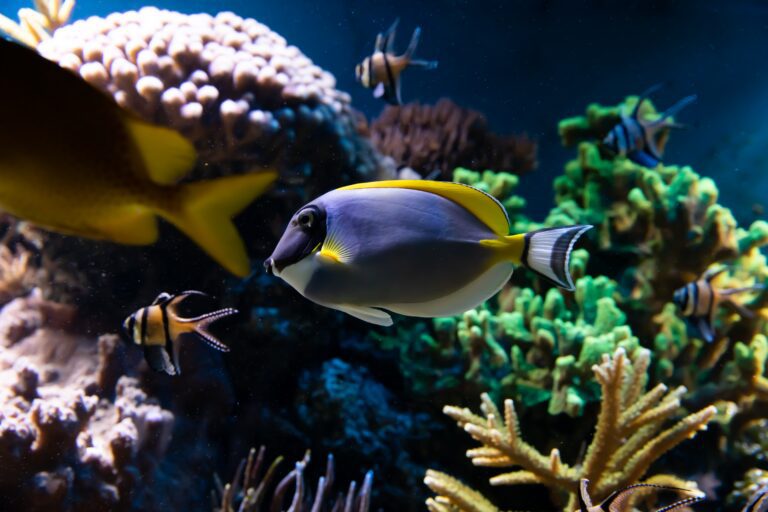Introduction
Our oceans, once vast and seemingly invincible, are now at a crossroads. As the world grapples with the dire consequences of climate change, pollution, and overfishing, it is evident that urgent and effective conservation measures are needed. In this pursuit, we must turn our attention to the wisdom of those who have lived in harmony with the sea for generations – indigenous communities. This article delves into the critical role of indigenous-led ocean conservation strategies, exploring how their traditional knowledge and sustainable practices offer a beacon of hope for nurturing our oceans back to health.
Statistics on Ocean Pollution, Overfishing, and Climate Change Impacts:
The oceans, covering over 70% of our planet, are facing an unprecedented crisis due to pollution, overfishing, and the impacts of climate change. Startling statistics reveal that about 8 million metric tons of plastic find their way into the ocean annually, causing severe harm to marine life. Overfishing is depleting fish populations at an alarming rate; approximately 90% of the world’s fisheries are either fully exploited or overexploited. Additionally, rising sea temperatures and ocean acidification, consequences of climate change, further threaten marine ecosystems. These statistics underscore the urgent need for collective action to address these issues and preserve the health of our oceans.
The Interconnectedness of Healthy Oceans with Global Ecosystems and Human Well-being:
Healthy oceans are not only crucial for marine life but also play a vital role in sustaining global ecosystems and human well-being. Oceans are a primary source of oxygen, absorbing about 30% of carbon dioxide produced by human activities. They regulate climate patterns and weather systems, influencing agricultural productivity and water resources. Furthermore, oceans support diverse ecosystems that provide food, livelihoods, and recreational opportunities for millions of people. The decline of ocean health poses a direct threat to these interconnected systems, emphasizing the need for comprehensive conservation efforts to ensure the continued well-being of both the planet and its inhabitants.
The Urgent Need for Effective Conservation Measures:
In light of the escalating challenges facing our oceans, there is an urgent need for effective conservation measures. Governments, industries, and individuals must collaborate to reduce plastic pollution, enforce sustainable fishing practices, and mitigate climate change impacts. Implementation of marine protected areas, strict regulations on pollution, and the promotion of eco-friendly technologies are essential steps towards preserving the delicate balance of ocean ecosystems. Public awareness and education are also crucial components, fostering a sense of responsibility and encouraging sustainable practices. The time to act is now, as the health of our oceans directly impacts the future of the entire planet. Through collective efforts, we can pave the way for a more sustainable and resilient coexistence with our oceans.
Indigenous Wisdom and Connection to the Ocean
Indigenous communities around the world have cultivated a profound and intrinsic connection to the sea, fostering a deep understanding of the ocean’s rhythms, cycles, and importance to their cultural identity. This connection goes beyond a mere reliance on marine resources; it embodies a spiritual, holistic relationship that has sustained these communities for generations.
This unique relationship is often rooted in indigenous wisdom, where traditional knowledge is passed down through oral traditions, stories, and lived experiences. The sea, in many indigenous belief systems, is not merely a source of sustenance but a living entity with its own spirit. This perspective fosters a sense of responsibility and reciprocity, urging communities to coexist harmoniously with the ocean rather than exploit it.
Overview of Traditional Knowledge and Sustainable Practices
Indigenous communities employ a wealth of traditional knowledge and sustainable practices that have evolved over centuries of living in harmony with the ocean. Sustainable fishing techniques, seasonal resource management, and a keen understanding of marine ecosystems contribute to the preservation of biodiversity and ensure the long-term health of the ocean.
For example, many indigenous groups engage in rotational harvesting, allowing marine environments to regenerate naturally. Traditional fishing methods, such as using handwoven nets or traps, minimize the impact on marine ecosystems, emphasizing the importance of balance and moderation in resource extraction.
Indigenous Perspectives on Holistic Solutions to Ocean Conservation Challenges
Indigenous perspectives offer a holistic approach to addressing contemporary ocean conservation challenges. Rather than viewing the ocean as a mere resource to be exploited, indigenous communities see it as a vital component of their interconnected existence. This mindset encourages sustainable practices that prioritize the well-being of both communities and the marine environment.
By integrating indigenous wisdom into broader conservation efforts, we can gain insights into holistic and long-term solutions. This includes fostering community-based conservation initiatives, respecting traditional marine management systems, and acknowledging the intrinsic value of the ocean beyond its economic contributions. Incorporating indigenous perspectives into ocean conservation strategies is not just a matter of cultural sensitivity; it is an essential step towards ensuring the health and resilience of our oceans for generations to come.

Community-Led Conservation Initiatives: Preserving Marine Biodiversity
In recent years, there has been a notable shift towards community-led conservation initiatives, with indigenous communities taking the lead in preserving marine biodiversity. These projects have demonstrated remarkable success, showcasing the effectiveness of local knowledge and engagement in safeguarding delicate marine ecosystems.
Example 1: The Great Barrier Reef, Australia
One shining example is the partnership between indigenous communities and marine scientists in Australia to protect the Great Barrier Reef. Indigenous groups, such as the Wuthathi and Meriam people, have been actively involved in monitoring and managing the reef, drawing upon their traditional knowledge of the land and sea. This collaboration has not only led to the development of sustainable fishing practices but has also contributed to the overall health and resilience of the reef.
Example 2: Guna Yala, Panama
In Guna Yala, an autonomous indigenous territory in Panama, the Guna people have implemented innovative conservation measures to safeguard their coastal areas. Through a combination of traditional fishing regulations and modern scientific practices, they have successfully protected vital marine habitats. Their approach demonstrates the importance of incorporating indigenous knowledge into conservation strategies, ensuring the sustainability of both marine life and the livelihoods of local communities.
The Effectiveness of Community-Based Initiatives
Community-based initiatives have proven to be highly effective in preserving marine biodiversity. By involving local communities, these projects not only address environmental concerns but also promote sustainable practices that benefit both ecosystems and the people who depend on them.
Empowerment and Responsibility
Indigenous-led conservation projects empower local communities to take ownership of their natural resources. This sense of responsibility fosters a deep connection between the people and the environment, leading to more sustainable fishing practices, habitat protection, and overall ecosystem health.
Adaptability and Resilience
Community-based initiatives are often more adaptable to changing environmental conditions. Indigenous knowledge, passed down through generations, equips communities with the tools to respond to shifts in marine ecosystems. This adaptability enhances the resilience of these initiatives, ensuring their long-term success in the face of climate change and other challenges.
The Role of Indigenous Knowledge in Shaping Initiatives
Indigenous knowledge plays a pivotal role in shaping successful marine conservation initiatives. The traditional wisdom passed down through generations provides a nuanced understanding of local ecosystems, enabling communities to implement effective and sustainable strategies.
Holistic Understanding of Ecosystems
Indigenous knowledge is holistic, encompassing not only the biological aspects of marine ecosystems but also the cultural and spiritual connections that communities have with the sea. This comprehensive understanding allows for the development of conservation initiatives that consider the intricate balance between human needs and environmental health.
Incorporating Traditional Practices
Community-led initiatives often integrate traditional practices into modern conservation efforts. This fusion of ancient wisdom with contemporary science results in well-rounded strategies that are culturally sensitive and environmentally sound. For example, indigenous methods of sustainable fishing and habitat management are integrated with scientific data, creating a powerful synergy that benefits both the community and the marine environment.
Challenges Faced by Indigenous Communities in Conservation Efforts
Indigenous communities worldwide play a pivotal role in environmental conservation, leveraging traditional knowledge and sustainable practices. However, they grapple with unique challenges that impede their efforts. Land encroachment, often fueled by extractive industries and agricultural expansion, threatens indigenous territories. This encroachment disrupts delicate ecosystems and endangers both wildlife and traditional ways of life. Limited access to resources and economic opportunities exacerbates these challenges, creating a cycle of vulnerability. Additionally, climate change poses a significant threat, affecting indigenous communities disproportionately due to their close connection with nature. Recognizing and addressing these challenges is crucial for fostering effective collaboration between indigenous-led initiatives and mainstream conservation efforts.
Opportunities for Collaboration Between Indigenous-Led Initiatives and Mainstream Conservation Efforts
Despite challenges, numerous opportunities exist for collaboration between indigenous-led initiatives and mainstream conservation efforts. Indigenous communities bring unique insights and sustainable practices that can enhance biodiversity conservation. Collaborative projects can leverage traditional knowledge to develop innovative, community-driven conservation strategies. Meaningful partnerships can also open avenues for eco-tourism and sustainable enterprises, providing economic alternatives that alleviate poverty and reduce dependency on environmentally harmful activities. Building trust and promoting inclusivity are key in fostering successful collaborations, ensuring that initiatives respect indigenous values and contribute to community empowerment. By recognizing the strengths each group brings to the table, these collaborations can create more holistic and effective conservation solutions.
Importance of Recognizing and Respecting Indigenous Rights and Sovereignty
Respecting indigenous rights and sovereignty is foundational to any successful conservation partnership. Indigenous communities have an intrinsic connection to their land, embodying centuries-old wisdom about sustainable coexistence with nature. Acknowledging and upholding their rights ensures that conservation efforts are not only ethical but also more effective. Inclusive decision-making processes, where indigenous voices are heard and respected, lead to more sustainable outcomes. Recognizing sovereignty also means understanding that conservation initiatives must align with indigenous cultural values and land management practices. This mutual respect lays the groundwork for partnerships that are not only ecologically sound but also socially and ethically responsible. Ultimately, conservation efforts that honor indigenous rights contribute to the preservation of biodiversity while fostering social justice and cultural diversity.
Video Credit: Indigenous Leadership Initiative
FAQs
Q. How do indigenous-led strategies differ from conventional conservation approaches?
A. Indigenous-led strategies incorporate traditional knowledge, community involvement, and cultural practices, creating a holistic and community-driven approach to conservation.
Q. What role do marine protected areas play in indigenous-led conservation?
A. Marine protected areas designated by indigenous communities serve as hubs for biodiversity, allowing for sustainable resource management and cultural preservation.
Q. How can non-indigenous individuals support indigenous-led conservation efforts?
A. Support can be provided through education, collaboration, and respecting traditional practices. Donations to reputable organizations working with indigenous communities are also impactful.
Q. Are there examples of successful indigenous-led marine conservation projects?
A. Yes, initiatives like the Guna Yala Indigenous-led Conservation Project in Panama and the Bana’medala initiative in the Solomon Islands have demonstrated success in preserving marine ecosystems.
Q. How does climate change affect indigenous-led conservation efforts?
A. Climate change poses challenges such as sea-level rise and altered migration patterns. Indigenous communities adapt by incorporating traditional knowledge and innovative solutions into their conservation practices.
Q. Can traditional fishing practices be sustainable in the modern context?
A. Yes, many traditional fishing practices are inherently sustainable, focusing on selective harvesting, seasonal limitations, and respecting ecological cycles to ensure the long-term health of marine resources.
Conclusion
In the face of unprecedented challenges to our oceans, it is paramount that we look to holistic and sustainable solutions. Indigenous-led ocean conservation stands as a testament to the power of traditional wisdom and community-based approaches. As we conclude this exploration into the role of indigenous strategies, let us recognize the profound impact these communities have in safeguarding our oceans. By respecting and supporting their efforts, we not only protect marine biodiversity but also honor the symbiotic relationship between humanity and the vast, mysterious depths that cradle our planet. The path to a healthier ocean involves embracing the time-tested practices of those who have been its stewards for centuries – the indigenous guardians of our seas.
UP NEXT
The Threat of Ocean Conservation Burnout: Strategies for Sustainable Advocacy



